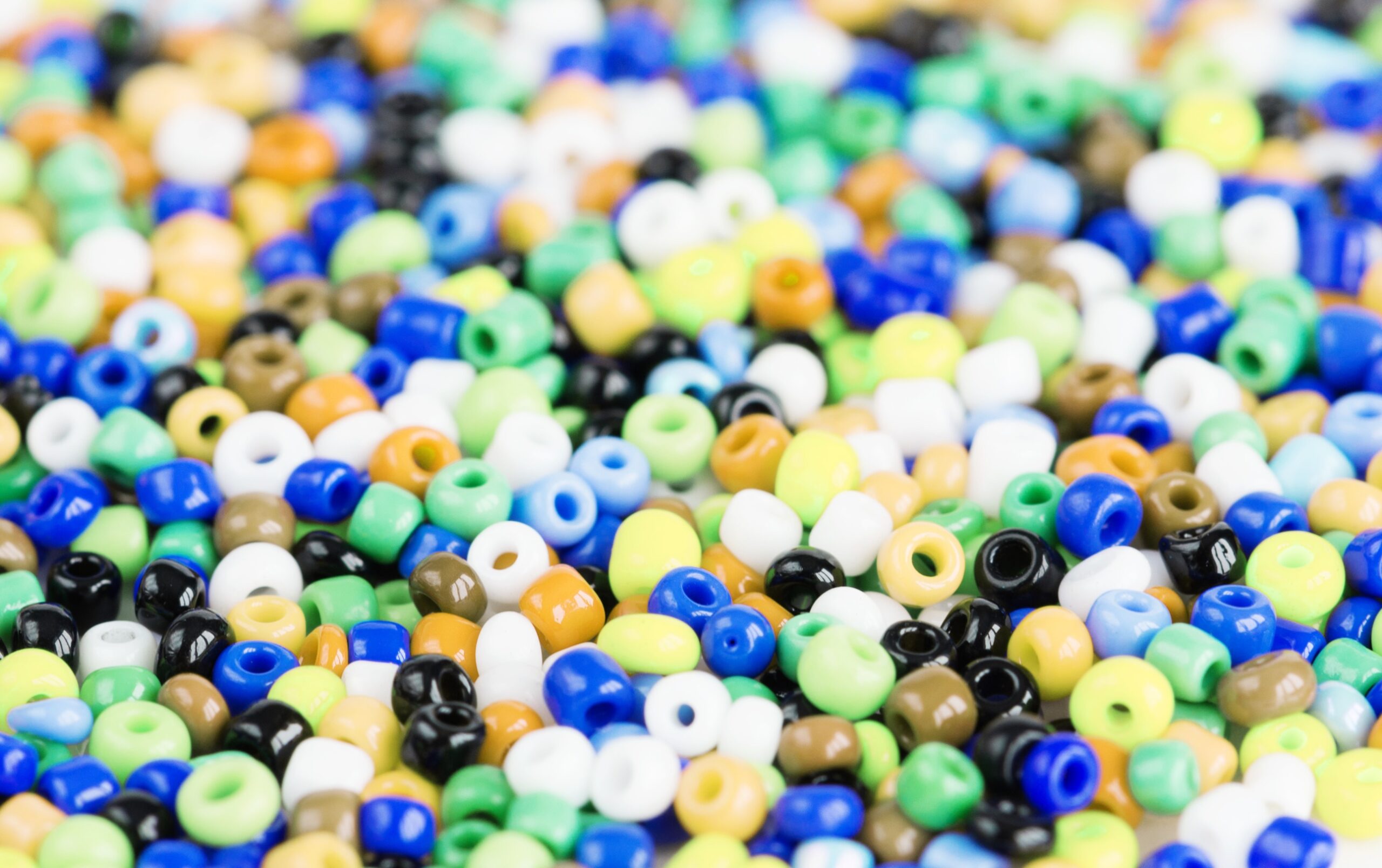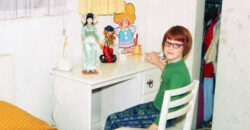Drop Your Beads Along The Way

Grandma always worried about dying of cancer ever since I can remember. And when she did die, in 1980, she died of cancer. That got my attention. I stopped worrying about dying in a car accident immediately.
Her son–my father–had died seven months before her, and my aunts and uncles, his brother and sister, tried to tell me that she died of a broken heart, but it couldn’t have been that broken since she couldn’t even get to the hospital–less than a mile from her house–that last time he had a heart attack. He never returned from Grace Hospital except in a body bag, and she never ventured out to see him before his lungs filled up with blood, and he suffocated. He was 53.
After Grandma died, my Aunt Ruby invited me over to Grandma’s house to pick one thing I would like to keep of hers. As she ushered me around, she said, “You’ll never know how hard it is to lose a parent.” Can you imagine the blow I felt from that? I corrected her.
I noticed when I walked around the house that many things were already missing. In the front bedroom, the one closest to the mental hospital graveyard that abutted their land, I saw a broken-down beaded frame on the wall with a sepia photo of my dad as a young man in it. Beads had gone missing over the years, some of which were still on the floor beneath the frame. The string exposed by the missing beads was so old and fragile. “I’d like that,” I told Ruby, knowing it had no financial value. She hesitated.
*
Thirty-five years later, Mama died. I sent John down the mountain to her house to check on things, knowing we would need to empty it and sell it. And there were things I wanted, like all the art I had painted over the years that were hanging on her walls in her attic, all those family photos, my childhood memories, my wedding dress sealed in a box under the guest bed, the old Bible with the family tree in it, my mother’s jewelry, Daddy’s barbering tools, prom dresses–-all the family memories had been concentrated in that home. All my childhood was in its attic.
*
After a moment, Ruby spoke, “well, that’s something I have always wanted to have myself,” she said, pointing to the haphazard, broken beaded frame on the wall. “Isn’t there something else you would like to have?” I silently looked at her, looked at the frame, and walked out without a word, exiting through the kitchen door where Grandma used to tie a string to our loose teeth and slam the door to pull them out with the same kind of little old woman fury she used for killing chickens in the backyard with her own hands. I slammed the door, an echo that was a long time coming, and drove away.
*
“Patti,” John said slowly when he got down the mountain to Mama’s house. “There’s a padlock on the door and a notice saying the house has been sold.” There was no way in. The house had been sold months before without us knowing it, with everything in it now the property of the buyers who would soon flip it and sell it for more than double what they had paid. We argued with the bank, we pleaded to get the family memories out of it. Nothing worked. The owners had a yard sale of all our childhood things, all the furniture, all my paintings; everything my mother had ever owned was put in the front yard for strangers to buy for pennies. For months, I would wake up in a sweat, realizing something else that had been in the house was now gone. It was a small town. What must people have thought? Can you imagine the horror?
*
Six years later, I can see it as a gift in a way I couldn’t at the time. There is nothing I need or have or want to have that won’t go away, like all those objects from my mother’s house, like all those things my aunts and uncles and their kids took from grandma’s house before I was invited in to choose something. It all means nothing. There is no win. Whatever we are is what we are, not the art we’ve collected or made, not even the photos to tell future generations who we were. We just are, and we fill up those days somehow, and then we’re not. Letting go is the only way through. Thanks to Aunt Ruby and those who let Mama’s house be unceremoniously sold with everything in it, I am free from this earth in a new way, dropping beads as I go.









